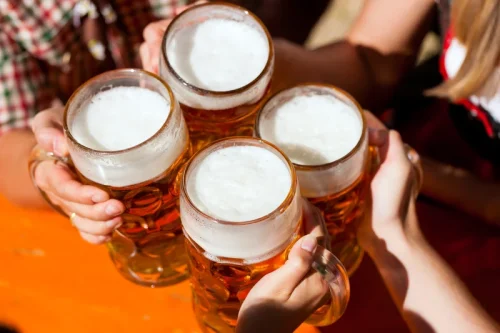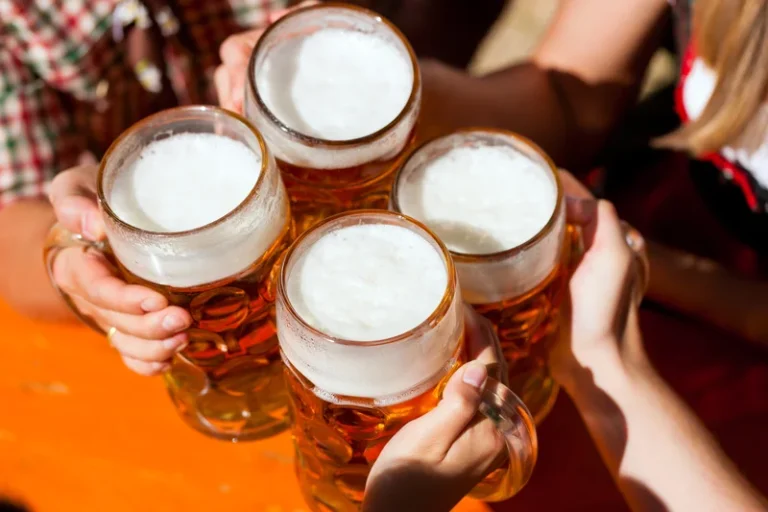
He did LSD a few times (… and once asked a girl on a date after telling her that he’d dialed the phone with his toes). Memoirs are both intimate and all-encompassing; in telling their own story, the author is often speaking to a vast audience. Jill describes her childhood growing up as a family affiliated with the Institute in Basic Life Principles. At first, her family attended a church with more progressive Christians in addition to being taught these principles, which ended when the children were shown a Christmas dance. She had many expectations growing up as a result of the family’s religious beliefs such as not watching television or dancing.
Wishful Drinking by Carrie Fisher
- Reading these books about alcoholism (memoirs, nonfiction, and fiction) and recommending them to you is part of my personal therapy.
- Customers appreciate the author’s style as compelling, artful, and a work of art.
- As a mother, I relate to her story so deeply—our children were the same young age when we stopped drinking.
- Resmaa Menakem shares the latest research on body trauma and neuroscience, as well as provides actionable steps towards healing as a collective.
In 1992, Mishka Shubaly survived a mass shooting Sober living house at his school, his parents divorced, his father abandoned him, and he swore he would right all the wrongs for his mother. Instead, he began a love affair with the bottle and barely crawled out, but he did, and we cheer him on at each twist and turn in his journey. It was the beginning of using externals to fix an internal problem. A 74-year old Native American found me at ten months in recovery.
“The Sober Diaries: How One Woman Stopped Drinking and Started Living”
So many of us look at “blacking out” as benign, or normal—an indicator of a “successful” night of drinking. In Blackout, Sarah clearly explains why there’s nothing benign about it and describes what is actually happening to the brain when we reach that point of alcohol-induced amnesia. I love her perspective on drinking as an act of counter-feminism—that in reality it actually dismantles our power, our pride, and our dignity as women, though we intended the opposite. They appreciate the author’s portrayal of family and friends, insights into self-pity and victim mentalities, and compassion for others.

Why did I love this book?
In his first novel, Burroughs gives a vivid, semi-autobiographical account of heroin addiction in the early 1950s. A person of extraordinary intellect, Heather King is a lawyer and writer/commentator for NPR — as well as a recovering alcoholic who spent years descending from functional alcoholism to https://ecosoberhouse.com/article/do-you-genuinely-like-the-feeling-of-being-drunk/ barely functioning at all. From graduating cum laude from law school despite her excessive drinking to languishing in dive bars, King presents a clear-eyed look at her past and what brought her out of the haze of addiction. The acclaimed author of Prozac Nation goes from depression to addiction with this equally devastating personal account. Wurtzel reveals how drugs fueled her post-breakout period, describing with unbearable specificity how her doctor’s prescription of Ritalin, intended to help her function, only brought her down.

Ditlevsen’s failure of nerve, causing her to wrap up three volumes of the most trenchant and unillusioned autobiography ever written with a feeble daydream, is easily explained. She surely felt the reader (and perhaps the author) had endured too much pain in the preceding story to be sent away without solace. The fact that, in so doing, she effectively obeyed a formal convention of addiction memoir helps explain how many of those conventions arose. The fact that even a great artist like Ditlevsen can capitulate to such dictates, if only once, demonstrates how powerful they are. Although I think they can all be considered addiction memoirs, and share a familial resemblance with other examples of that form, none of them feel remotely imprisoned by its conventions. And yet—even though each of these books goes its own way, never hesitating to flout a trope or trample a norm to serve its story—they don’t go in terror of the conventions either.
Alcoholics Anonymous Hardcover by AAWS

The Glass Castle is a captivating memoir written by Jeannette Walls that offers a poignant and often shocking glimpse into her unconventional and tumultuous upbringing. Walls recounts her experiences growing up in a dysfunctional family with deeply flawed parents who struggle with alcoholism and erratic behavior. The book delves into the complexities of family dynamics, resilience, and the enduring power of hope in the face of adversity. With unflinching honesty, Walls shares the challenges and moments of love and tenderness that characterized her unconventional childhood. Looking for a gripping read that delves into the world of alcoholism?

“This Naked Mind: Control Alcohol, Find Freedom, Discover Happiness & Change Your Life”
When something awful happens to us, our way to cope is to turn off and even turn against ourselves, as a method of resilience. The book discusses drug policies, substance use treatment, and the root causes of substance use. More than anything, In the Realm of Hungry Ghosts provides a voice of kind generosity and understanding to anyone who is looking to learn more for themselves or a loved one. This is one of the best memoirs on alcohol recovery in my opinion. She highlights not only her relationship to alcohol, but also key takeaways from her many attempts to get sober. Reading her book is like sharing a cup of coffee with your wise best friend.
Raise a Glass—Or Maybe Don’t: The Sobering Secret About Alcohol and Cancer
It’s a memoir of her addiction to alcohol, and her subsequent recovery, and her conversion to Catholicism. Admitting you have a problem — not to mention actually getting sober — is no small feat. There’s no award for “Most Sobriety Memoirs Read,” so read them for yourself — let their wisdom be its own award (I can feel your eye rolls. I’m sorry.). Shortly after accepting she had a problem with alcohol, she thought best alcohol recovery books a lot about how some people are lucky enough to be able to drink normally without it controlling their life. Check out our picks for the best addiction and recovery memoirs.
